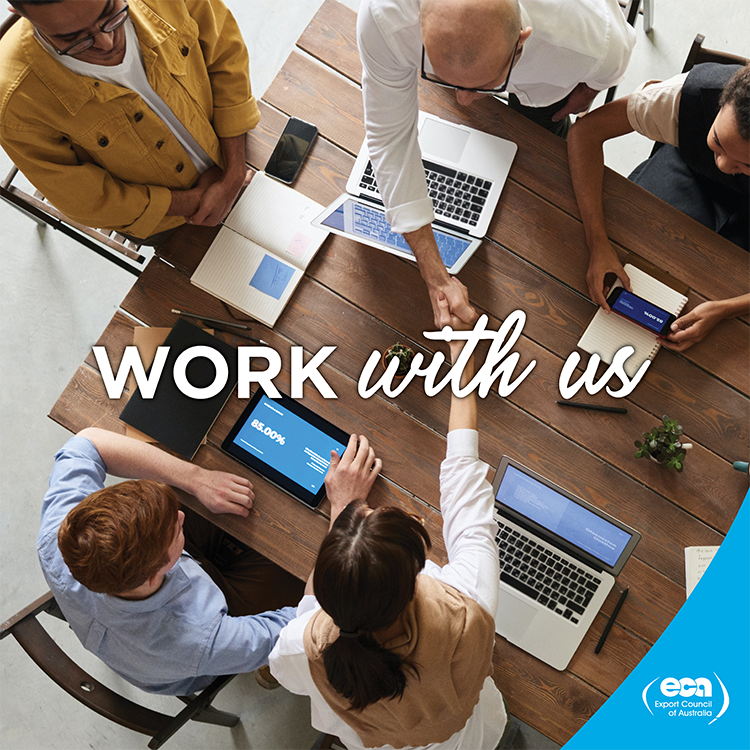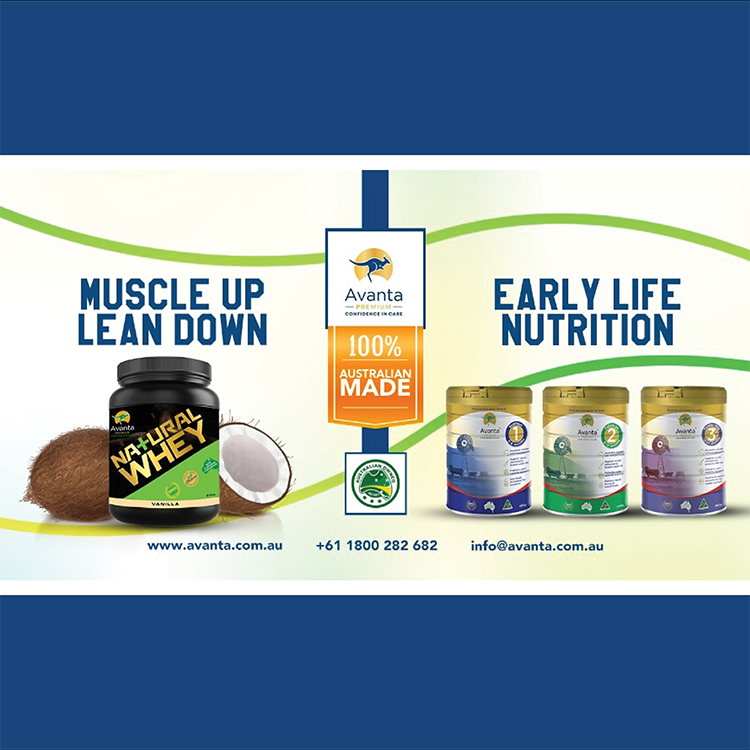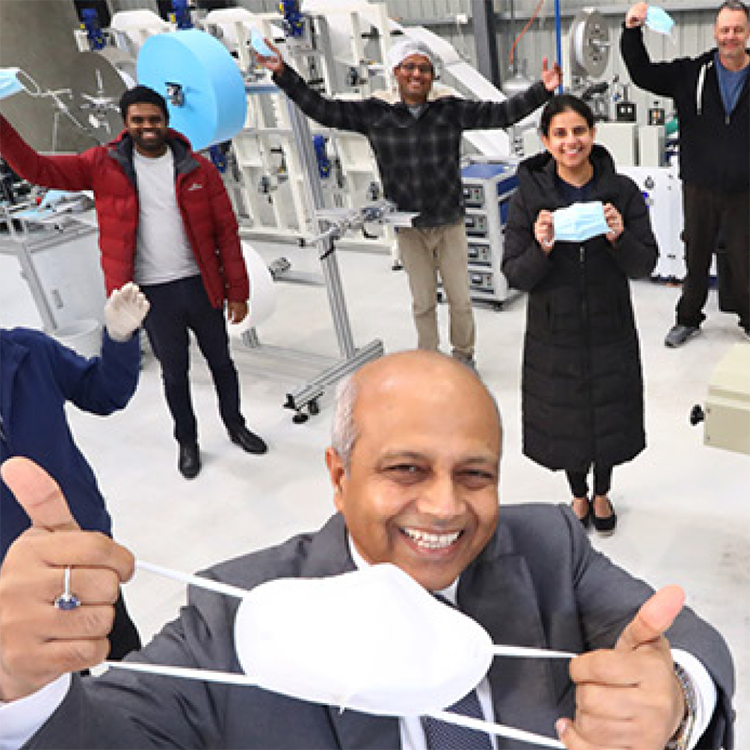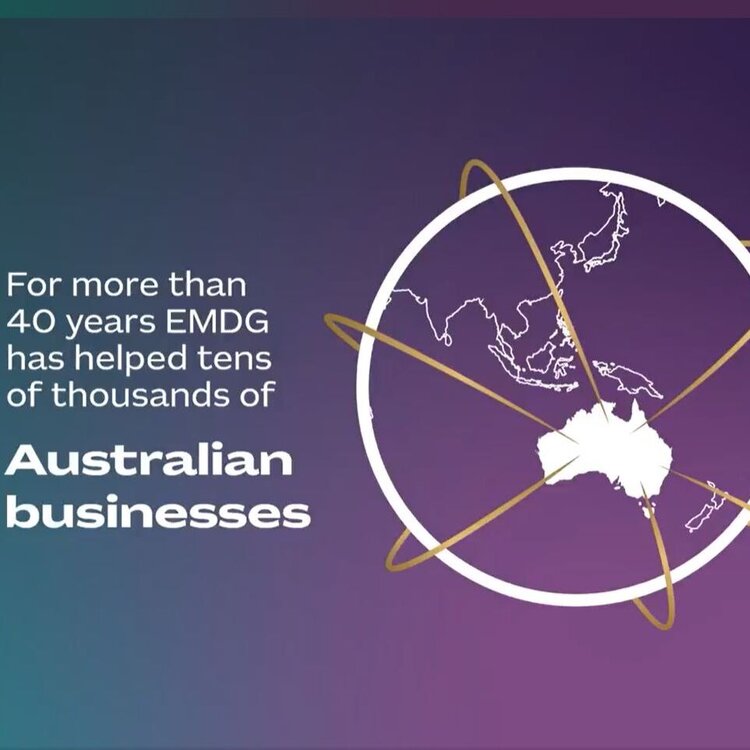Join the ECA team! New position available
Here is an exciting opportunity to join the Export Council of Australia (ECA) as a full-time Membership Development and Events Manager (for an initial contract of 12-months).
We are looking for an all-rounder and self-starter, someone who has the right attitude, quick to learn, and relevant experience to become ECA’s Membership Development and Events Manager.
- Identifying and establishing new business membership and corporate partnerships.
- Effectively communicating ECA offerings and maintaining a consistent level of partner engagement and communication.
- Actively monitoring and understanding individual business needs and responding effectively to their requirements.
- Building and maintaining strong relationships with new and existing channel partners.
- Organising events, such as the Export Awards. This includes orchestration of events, identifying and securing nominations and sponsorships, managing judging of the winners, preparing documentation and written material (such as case stories, media releases and correspondence). Working with the ECA Chair, CEO and ECA team to deliver the Awards ceremonies (in person or digital).
- Determining and managing the Export Awards budget to maximise profit return for the programmes in consultation with the Chair/CEO, as advised.
- Managing ongoing relationships with the ECA’s Export Awards partners. Effectively communicate with them and ensure the contractually agreed marketing/event activities are met.
- Increasing Export Awards partnership revenue and ticket sales.
- Collaborating with the graphic designer to deliver all creative material for the Export Awards.
- Promoting events, based on a clear marketing plan.
- Developing and executing other ECA events in collaboration with the ECA Divisions involved.
- Monitoring industry best practices.
This position offers an excellent opportunity to gain invaluable experience. We are committed to ensuring working conditions are excellent with a positive team environment.
Required qualifications, skills & experience:
- At least 5 years’ experience in a similar role (business development, membership, corporate events, communications or similar) with experience in the international trade & investment industry (essential).
- Relevant Tertiary qualifications, i.e. Bachelor of Commerce, International Business, Marketing, Communications or similar (desirable).
- Proven success in establishing relationships with senior executives and stakeholders, and work collaboratively with all sectors including government, business, academia and not-for-profit.
- Demonstrate sound knowledge of partnership attraction and retention strategies and ability to convert prospects to partnership revenue.
- Have strong computer skills (MS Office, Xero) and preferably have CRM management experience.
- Strong written and oral communication skills, including confident presentation abilities.
- Ability to communicate complex ideas and influence decision makers.
- Keen interest and understanding of current and emerging trade issues would be an advantage.
- Demonstrated innovative thinking and openness to change.





